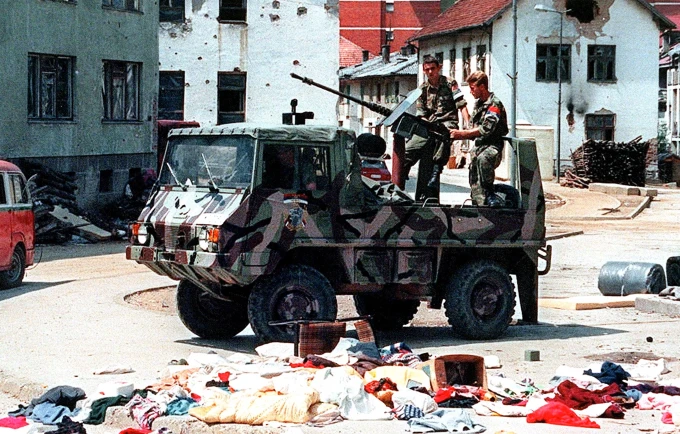
Foto: EPA
An editorial by Sylë Ukshini
The book “Witness to the Genocide of Srebrenica” by Imam Mevludin Hrnjiqi is a rare and irreplaceable testimony to one of the most serious crimes against humanity since the end of World War II. Written from the perspective of a direct witness, this text transcends the boundaries of personal narrative and becomes an important historical and moral document that sheds light on the dimensions of systematic violence and ethnic hatred fueled by the ideology of Greater Serbia. With profound honesty, a keen ethical and historical sensibility, and exceptional moral courage, Imam Mevludin Hrnjiqi gives voice to one of the greatest tragedies of our time. This voice must not only be heard, but also preserved, researched, and passed on from generation to generation.
In his book Witness to the Srebrenica Genocide: A Chronology of Remembrance, Imam Mevludin Hrnjić describes in shocking detail how Serbian paramilitary units such as the “Arkan Tigers” spread organized terror to force Muslims to leave their homes and lands. This terror was not simply spontaneous, but part of a well-coordinated strategy supported by the Yugoslav People’s Army (JNA), which was actively involved in ethnic cleansing operations.
One of the most vivid episodes described by the author is the moment when, on his way back from visiting a community in Karakaj, he is confronted by Serbian soldiers brandishing knives and making gestures to slit his throat—a symbolic and shocking sign of the violence threatened. This case is not an isolated one, but illustrates the essence of criminal collaboration between state military institutions and paramilitary groups – a collaboration that made genocide possible on the ground.
The barricades of the “Wooden Revolution”
One of the moments that heralded the open start of the war was April 6, when sad and disturbing events took place in the town of Zvornik: local Serbs erected barricades on the Vidakovo field and in Meterizme. This was the so-called “Wooden Revolution” – a strategy already known from Kosovo, where local Serbian groups, supported by Belgrade, erected blockades to cause institutional chaos and cast themselves in the role of victims. This propaganda scheme was often preceded by organized attacks.
Although he is a religious man, he believes in armed struggle and always speaks with respect of the resistance of the Bosnian Muslim fighters. He acknowledges that the Bosniaks are weak in terms of weaponry, but says: “We are ready to fight and confront the enemy.”
After the fall of Kamenica, Imam Mevludin arrived in Srebrenica with his family and other residents, which had been declared a UN safe area at the time.
After the city was declared a safe area, the demilitarization of the Bosnian Muslim forces began, while UN observation posts were set up outside the city. However, according to the author, the situation only worsened—humanitarian aid was often obstructed by Serbian Chetniks, while fear and uncertainty reigned in the city, especially when several commanders of Bosniak units, including the legendary Naser Orić, fled Srebrenica. Mevludin has deep appreciation and respect for him.
Early July: The siege by Chetnik units
In early July, Serbian Chetnik units began to surround the city—a clear sign of the impending catastrophe. Despite their presence, Commander Rupert Smith and the UNPROFOR troops did nothing to stop the attacks, leaving the citizens helpless. Their hope faded day by day.
In his diary, Imam Mevludin describes the most painful moments of the civilian population’s confrontation with the attacker. He painfully recalls the words of his father, who, in order to protect his family, packed a backpack with bread, canned food, powdered juice, and tobacco leaves and said:
“Come, child, save yourself; let what must happen happen to me.”
This was the last time Mevludin saw his father—an eternal reminder of the personal and collective tragedy that unfolded.
It was July 11—the day the Srebrenica massacre began. After Imam Mevludini saw his mother for the last time, he set off with the column of fighters as a member of the fourth company of the 284th Brigade. “We take a break on the hill above the village of Joshgevë. I turn around and look at Srebrenica. My eyes fill with tears – with sadness and helplessness when I see what is happening to us,” he writes.
Eighty days of fear, suffering, and struggle for survival
Thus begins his eighty-day journey to Kalesija, through forests, hills, alleys, and Chetnik lines—a journey filled with fear, suffering, and struggle for survival. Through his narrative, the reader experiences the nightmare and torture that accompanied every step of this march, filled with frightening and dramatic episodes.
In one of the most painful episodes, Imam Mevludin describes the use of chemical weapons by the Chetniks, who also poisoned water sources to target civilian troops. “The effects of the combat toxins, hallucinations, sleep deprivation, exhaustion, hunger, and panic left deep scars. Many surrendered. Some in the vain hope of release or exchange, others committed suicide in desperation. The wounded did the same because no one could help them.”
One of the most touching experiences was the encounter with his mother after his rescue: “It was an experience I had always dreamed of. After meeting my mother, I felt great strength and peace. She has given me new self-confidence again and again.“ About his murdered father and brothers, he says: ”I often meet them only in dreams, as if they were alive. And that becomes more difficult with each passing year.”
This excerpt represents a deeply emotional and narrative moment in Imam Mevludin Hrnjiqi’s autobiography and illustrates the personal and collective dimensions of the trauma following the genocide in Srebrenica. “The house was destroyed and burned down. I sat on the threshold and cried from the bottom of my heart,” writes Imam Mevludin. When he returned to his homeland after two and a half years, witnessing the destruction of his home and the tears of his pain, he poignantly expressed the extent of the loss and the loss of any sense of normality for the survivor.
The episode with his compatriot Rexho, who hands the narrator the entrails of a baby as a legacy for his wife, carries an extraordinary symbolic charge: it is a final testimony to life and love in the context of systematic extermination. This simple but deeply human gesture becomes an ethical call to preserve memory, confront pain, and uphold the honor of the victims through the act of testimony.
Warning against a “second Bosnia” in Kosovo
For Imam Mevludin Hrnjiqi, documenting the Bosnian tragedy, and in particular the genocide in Srebrenica, is not only a personal memory, but a universal call not to forget and not to forgive the crimes committed in Srebrenica. Just as it was a moral and historical obligation for the author to document the genocide, it is a shared responsibility of all of us to preserve the memory of this event, which changed the course of Balkan history and served as a warning to the world so that a “second Bosnia” does not occur in Kosovo. The tragic experience of the genocide in Srebrenica in July 1995 marked a turning point in the awareness of Western political elites of the need for early and decisive intervention in cases of humanitarian crises and mass violence. This collective trauma shaped the willingness to act more decisively four years later in the case of Kosovo—through military intervention aimed at stopping ethnic cleansing and punishing the Serbian state apparatus.
Objections to the denial of crimes
Even today, however, critical voices against this intervention can still be heard in radical left-wing circles in the West. Guided by deep anti-American convictions and a so-called “anti-imperialist” discourse, they consider NATO’s intervention in Kosovo to be illegal, as there was no explicit authorization by the UN Security Council, particularly due to Russian opposition. These positions are often accompanied by a trivialization or denial of the crimes committed by Serbian forces against the Albanian population of Kosovo.
Furthermore, some of these voices not only question the legitimacy of the intervention and Kosovo’s independence, but even go so far as to deny documented events such as the Racak massacre and many other atrocities, portraying them as propaganda constructs or deliberate slander. Such an attitude not only contradicts the data of the Hague Tribunal and the reports of international human rights organizations, but also carries the risk of legitimizing revisionist approaches and undermining efforts to achieve justice and reconciliation in the region.
In this context, the adoption of the resolution on Srebrenica by the United Nations General Assembly in 2024, which declares July 11 as the “International Day of Reflection and Remembrance of the 1995 Genocide in Srebrenica,” represents an important act of international recognition of historical truth and a significant step toward transitional justice. This resolution not only consolidates the fact-based account of the crimes committed, but also opens up a new path for critical reflection and for societies to confront their violent past.
In this sense, Kosovo—a country that itself was a victim of ethnic cleansing and state violence in the name of Serbian nationalist ideology—also bears the moral and historical responsibility to commemorate this day with dignity and lasting symbols. One such act could be the erection of a memorial bearing the number 8,372, representing the number of Bosniaks killed in Srebrenica – as a lasting public reminder for younger generations and a clear sign of solidarity with the victims of genocide. Through this symbolic commemoration, Kosovo contributes to the culture of European and international collective memory and positions itself as a society committed to truth, justice, and peace.
Conclusion
Imam Mevludin Hrnjiqi’s book “Witness to the Genocide in Srebrenica” is a rare and irreplaceable testimony to one of the most serious crimes against humanity since the end of World War II. Written from the perspective of a direct witness, this text transcends the boundaries of personal narrative and becomes an important historical and moral document that sheds light on the dimensions of systematic violence and ethnic hatred fueled by the ideology of Greater Serbia.
This ideology, deeply rooted in the infamous Memorandum of the Serbian Academy of Sciences and Arts (1986), comparable to the platform of the Serbian Cultural Club of 1939, continues to influence Serbian political and social discourse, even though it has not been seriously condemned by either Serbia itself or the international community. As the writer Ismail Kadare aptly noted: “The NATO bombs punished Serbia in 1999, but not the Greater Serbia doctrine.”
In this context, Hrnjiqi’s book is not only an act of remembrance, but also an urgent call for justice, responsibility, and historical reflection. It challenges collective amnesia and deliberate denial, and affirms the need for an honest examination of the past as a prerequisite for building lasting peace in the Balkans.
With profound honesty, a keen ethical and historical sensibility, and exceptional moral courage, Imam Mevludin Hrnjiqi gives voice to one of the greatest tragedies of our time. This voice must not only be heard, but also preserved, researched, and passed on from generation to generation—as an integral part of our collective memory and as a guarantee that evil will not be repeated./Koha/

 NATO must go on the offensive against Russia
NATO must go on the offensive against Russia 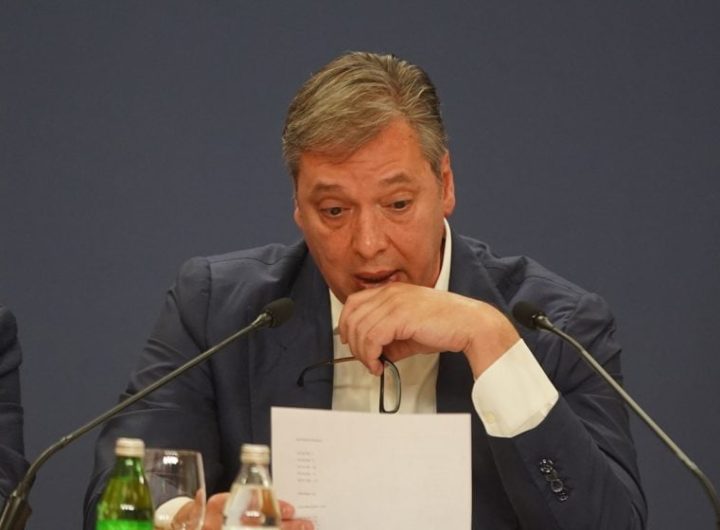 Will Serbia lustrate Vučić and his team after they fall from power?
Will Serbia lustrate Vučić and his team after they fall from power? 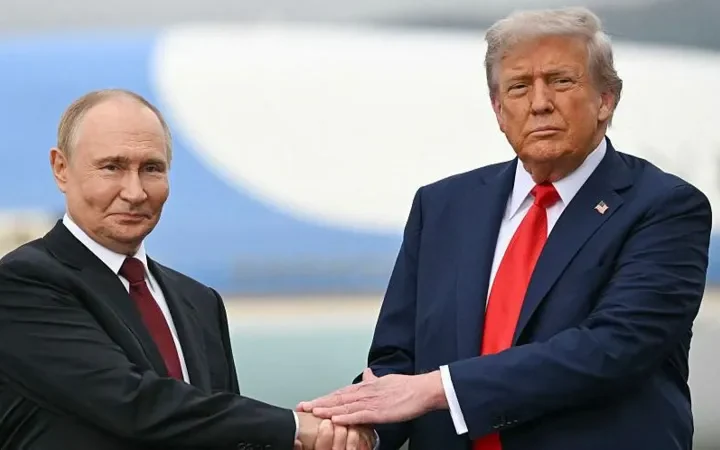 Trump lobbies EU for 100% tariffs on China and India
Trump lobbies EU for 100% tariffs on China and India 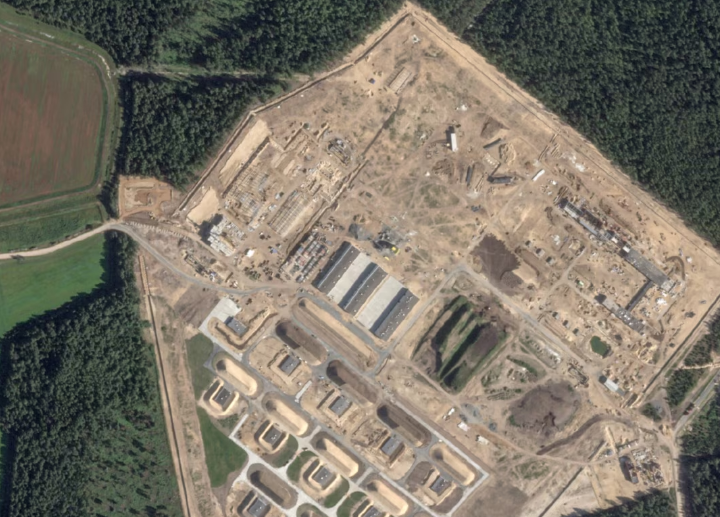 Satellite Images Appear To Show Secretive Construction Of ‘Strategic’ Base In Belarus
Satellite Images Appear To Show Secretive Construction Of ‘Strategic’ Base In Belarus 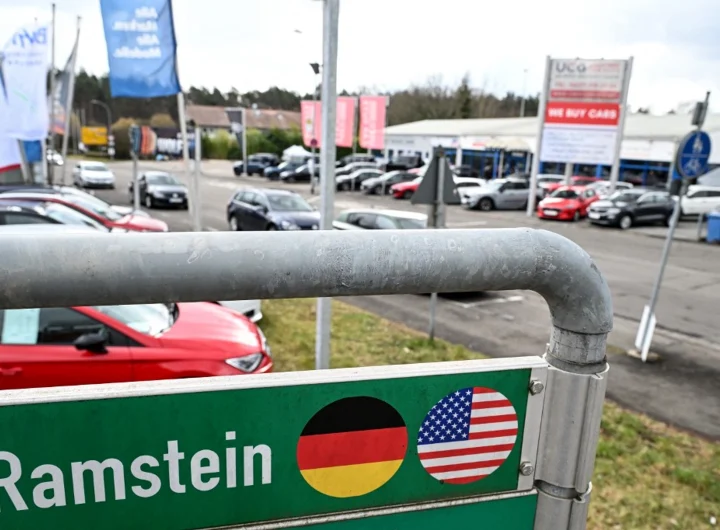 ANALYSIS: Russian Spy Drones Stalk NATO Supply Lines in Germany
ANALYSIS: Russian Spy Drones Stalk NATO Supply Lines in Germany 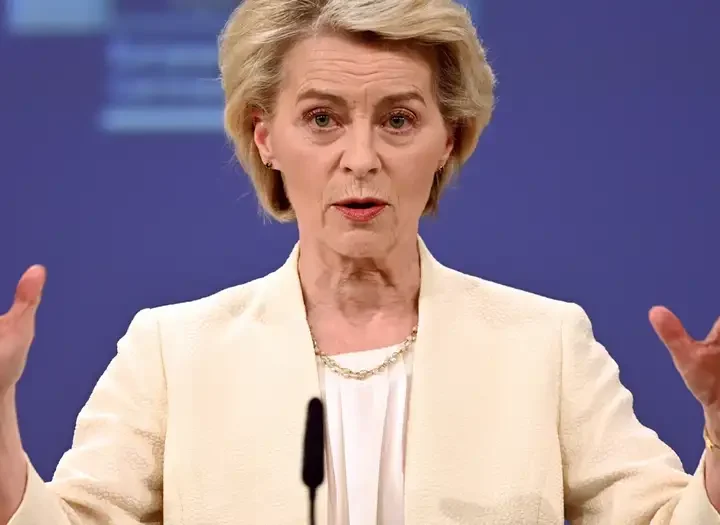 Russia stirs up hate against von der Leyen amid Ukraine war
Russia stirs up hate against von der Leyen amid Ukraine war